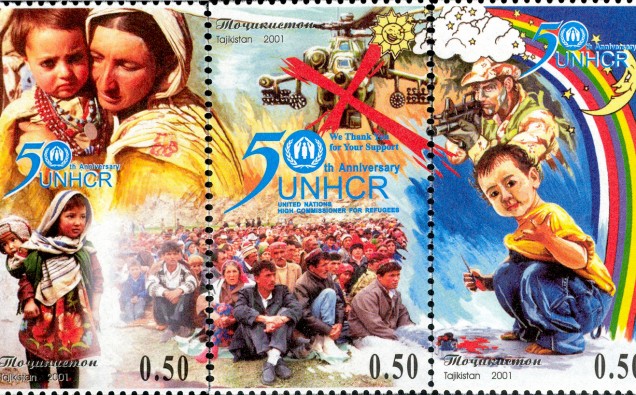
The year 2015 has been one of the worst in recent history for women and children.There seems to be no end to their travails in conflict-ridden regions and insurgency-hit countries. Women, belonging to both majority and minority populations, have been bearing the brunt of brutalities in Syria, Iraq and other parts of the region.
Both the militant violence and the state operations have left deep scars on the victims and their families. Thousands of children have died in Syria and Iraq alone, where deadly civil wars have reduced cities to rubbles and uprooted families. The ISIS or Daish has treated women harshly with all kinds of exploitation in both Iraq and Syria.
A Public Broadcasting Corporation documentary revealed how kids have gone through terrible psychological fears and traumas in the wake of bloodshed.
An unknown number of women have suffered along with men as refugees. Many Syrian families have drowned while crossing the sea from Turkey to Europe. The picture of a dead child lying on a Turkish coast speaks louder than many stories of horrors kids, women and men have suffered during the year.
In Afghanistan, where women have long faced persecution and gender discrimination, women were a major target of the Taliban who occupied the city of Kunduz a few weeks ago. As a result, all professional and educated women serving thee have left the area, inflicting a blow to efforts toward female socio-economic uplift.
In Africa, Sudan and Nigeria have seen women and kids suffer continuously. The October 2014 kidnaping of hundreds of girls by Boko Haram, which lasted into 2015, is a horrible episode. The girls in captivity were reportedly subjected to forced conversions and sexual assaults. In several African conflicts, boys are frequently used as child soldiers with no concern for their lives.
Closer to the United States, women in several violence-prone Latin American countries survive gang tortures on a daily basis. This week the UN reported that women in Central America and Mexico are fleeing their countries in rising numbers to escape a surge in deadly, unchecked gang violence. The situation is likely to fuel a looming refugee crisis in the Americas “that demands urgent and concerted action by the States of the region,” the United Nations refugee agency is warning.
“The violence being perpetrated by organized, transnational criminal groups in El Salvador, Guatemala, Honduras and certain parts of Mexico has become pervasive,” the UN High Commissioner for Refugees, António Guterres, said in Washington D.C., while unveiling a new report on the situation entitled Women on the Run.
In conflict zones, women’s health and access to education are biggest casualties.
According to the United Nations, in conflict and post-conflict countries, maternal mortality is on average 2.5 times higher . More than half of the world’s maternal deaths occur in conflict-affected and fragile states, with the 10 worst-performing countries on maternal mortality all either conflict or post-conflict countries.
While some government’s in developing countries have taken appreciable steps to fix traditional socio-economic biases, workplace discrimination and domestic violence against women, the situation remains far from satisfactory and way below international and UN development goals and standards. Too many women remain vulnerable to exploitation.
Pakistani teenaged activist and Nobel laureate Malala Yousafzai and American film star and now UN ambassador Angelina Jolie, have led a range of initiatives to sensitize corridors of power to pay due attention to the women’s development.
Malala, whose story of courage and bravery in the face of Taliban threats and gun attack has become a symbol for girls’ education, has delivered many speeches at international forums. She has singularly highlighted the urgency to arm women with books and quality education so they are able to contribute to the development of their families and communities and also help bring peace and security. Pakistan was also rattled by the December 16, 2014 with a Taliban attack on Peshawar’s Army Public School. The principal, teachers and young girl and boy students wrote a chapter of bravery. Their gruesome deaths at the hand of militants jolted families.
In the United States, First Lady Michelle Obama has also led a program to boost girls’ education with a fund that is nearing $ one billion.
Among world leaders, German Chancellor Angela Merkel has shown bold thinking, taking in a large number of refugees, and has been hailed as the “mother of outcasts.”
Another hopeful sign has been this month’s UN Security Council’s adoption of Resolution 2242, which places the women, peace and security agenda as a central component of efforts to address the challenges of the current global context, including rising violent extremism, climate change, and unprecedented numbers of displaced people.
“The resolution makes clear the substantive links between women’s participation and sustainable peace and security; and provides an extraordinary new tool for all actors to further implement this agenda and the objectives of the Security Council,” the UN noted.
In a majority of countries, women have benefited from the Internet and communication technologies but overall they lag behind because a large size of women have seen little or no difference in the quality of their lives from such technical advancements.
However encouraging these latest endeavors and international resolutions be, it is a fact that the results come only from implementation. Recent patterns of governments’ behaviors show corruption, negligence, lack of empathy, conflicts and misplaced priorities are roadblocks in the way of progress toward improvement in women’s status and lives.
One way to enforce implementation of UN resolutions and actual use of allocated resources could be to link international assistance, at least half of what goes to each country, to verifiable improvement in condition of women in these countries.
Regarding fate of women in conflict zones, the world powers must try to bring peace and establish a new global fund to rehabilitate displaced families, with mandatory contributions. The world financial institutions have also an important duty to perform toward that end.














